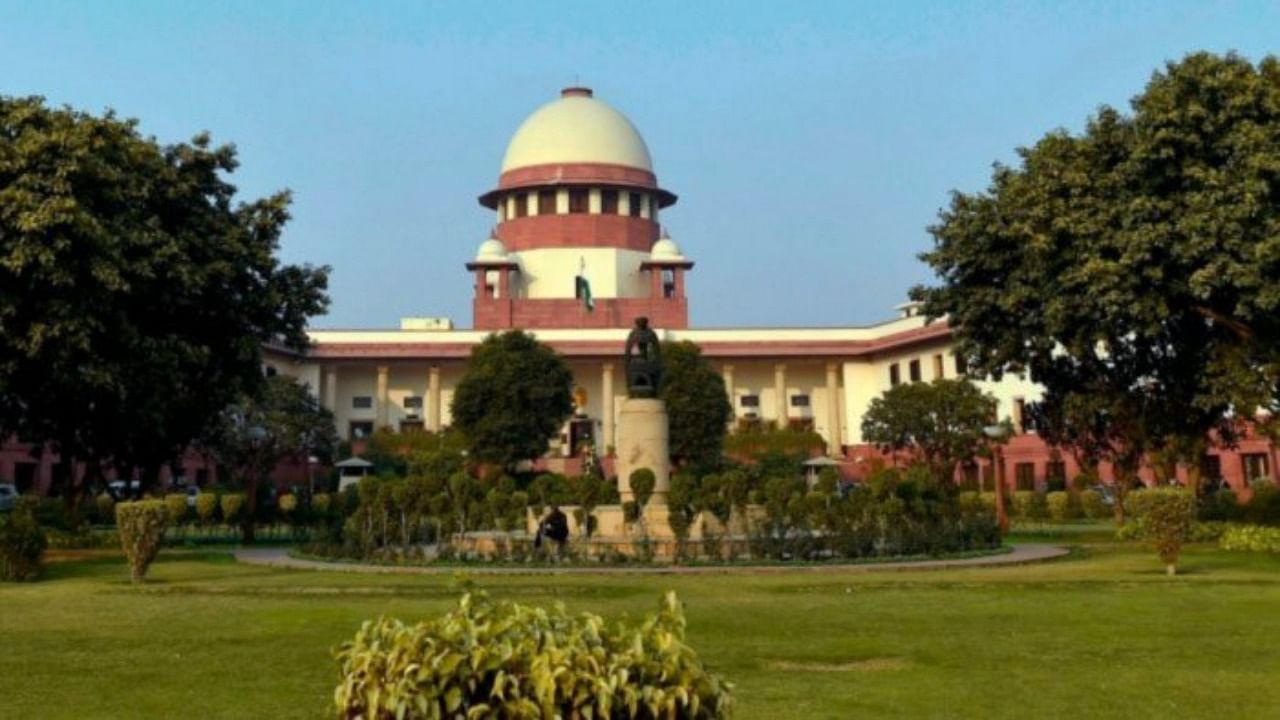
The Supreme Court of India.
Credit: PTI File Photo
New Delhi: The Supreme Court on Monday held that imposing any bail condition which enabled the police or investigation agency to track every movement of the accused by using any technology or otherwise would undoubtedly violate the right to privacy guaranteed under Article 21 of the Constitution.
Holding that the investigating agency cannot be permitted to continuously peep into the private life of the accused, a bench of Justices Abhay S Oka and Ujjal Bhuyan said the courts must show restraint while imposing bail conditions as the freedom of the accused can be curtailed only to the extent required for imposing the bail conditions warranted by law.
The court clarified a broader meaning cannot be assigned to the words “interest of justice” in Section 437(3) of Criminal Procedure Code.
"We can say that the bail conditions cannot be fanciful, arbitrary or freakish," the bench said.
The court quashed and deleted two conditions of dropping a Google map PIN and obtaining a certificate of assurance from embassy, imposed upon a Nigerian national Frank Vitus for bail in a case related to Narcotic and Psychotropic Substances Act.
The court also noted a submission by Google LLC which stated the PIN location does not enable real¬time tracking of the user or the user’s device.
"Therefore, the condition of the accused dropping a pin on Google Maps, as it stands, is completely redundant as the same does not help the first respondent (police)," the bench said.
In its order, the court, however, explained bail conditions cannot be so onerous as to frustrate the order of bail itself.
For example, the bench said, the court may impose a condition of periodically reporting to the police station/court or not travelling abroad without prior permission.
It also said where circumstances required, the court may impose a condition restraining an accused from entering a particular area to protect the prosecution witnesses or the victims.
"But the court cannot impose a condition on the accused to keep the police constantly informed about his movement from one place to another. The object of the bail condition cannot be to keep a constant vigil on the movements of the accused enlarged on bail. The investigating agency cannot be permitted to continuously peep into the private life of the accused enlarged on bail, by imposing arbitrary conditions since that will violate the right of privacy of the accused, as guaranteed by Article 21," the bench said.
"If a constant vigil is kept on every movement of the accused released on bail by the use of technology or otherwise, it will infringe the rights of the accused guaranteed under Article 21, including the right to privacy," the bench added.
The court explained the reason is that the effect of keeping such constant vigil on the accused by imposing drastic bail conditions will amount to keeping the accused in some kind of confinement even after he is released on bail. Such a condition cannot be a condition of bail, it said.
The court pointed out the object of imposing conditions of bail is to ensure that the accused does not interfere or obstruct the investigation in any manner, remains available for the investigation, does not tamper with or destroy evidence, does not commit any offence, remains regularly present before the trial court, and does not create obstacles in the expeditious conclusion of the trial.
While imposing bail conditions, the Constitutional rights of an accused, who is ordered to be released on bail, can be curtailed only to the minimum extent required. Even an accused convicted by a competent Court and undergoing a sentence in prison is not deprived of all his rights guaranteed by Article 21 of the Constitution, the bench said.
